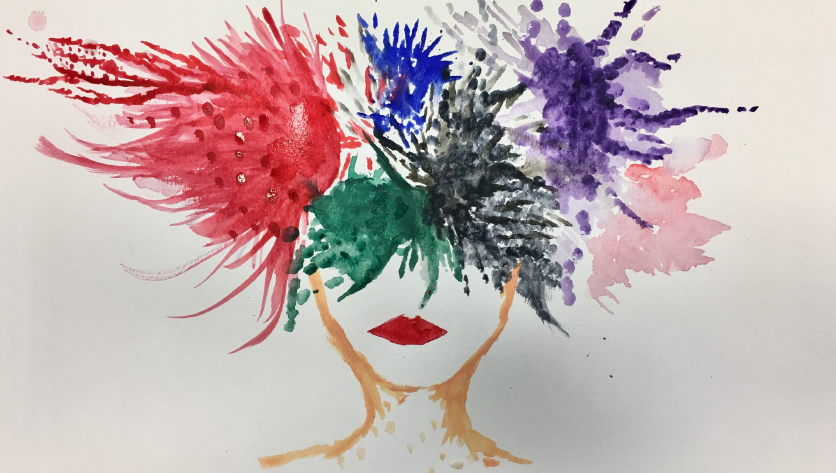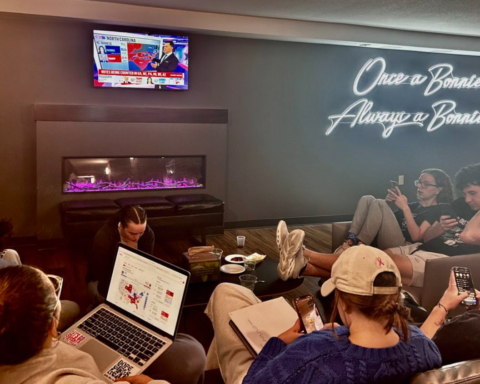Finals are rapidly approaching, sending students scrambling to balance a heavy workload, a social life and general life stresses. Coping skills are a highly important piece of maintaing mental health. One such coping mechanism is what’s known as art therapy.
Chris Anderson, director of the Center for Student Wellness, gives his insights into the benefits of this kind of therapy. Ultimately, art therapy is a way to cope with stress and articulate difficult emotions through art.
“Art therapy is a way of teaching people the benefits of incorporating creative expression into mental health counseling. It can be a way of communicating thoughts and beliefs and showing emotion to help a person cope with and process through issues,” said Anderson.
This, when used during times of high stress, can offer a variety of benefits to the artist. It can calm the mind and allow for better moods.
“Art therapy can help a person focus the mind and reduce the experience of racing thoughts,” said Anderson. “It can be a form of coping and relaxation. It also teaches a person how to refocus the mind in a way that is useful at certain times.”
It’s because of these apparent benefits that art therapy could be of use to students during finals. Because of its ability to refocus one’s energy, it can increase focus on academics while allowing students to cope with stress. Better yet, one does not have to necessarily be a talented artist to use art therapy because there’s no wrong way to use it.
“Art therapy is person specific. It’s a very creative way of processing emotion and/or working through issues, such as trauma and/or problems brought into a counseling relationship,” said Anderson. “People may be drawn to painting, drawing, poetry, pottery or other forms, which engage the senses and may provide a release of stress and/or open up ways of coping.”
Furthermore, it’s a significantly healthier way of coping with difficulties than those we see all too much of, such as binge drinking, drug dependency and self-harm. By conveying emotion through art, one can minimize the urge to turn to substances or other unhealthy habits to cope.
“It’s really meant to be something used in place of unhealthy coping and stress-relieving activities. Using drugs or alcohol do not have long-lasting positive benefits and often creates more problems down the road,” said Anderson.
“Additionally, drugs and alcohol can make the experience of stress actually increase, depending on the circumstances. So counselors don’t recommend using drugs or alcohol to relieve stress at all, since this is potentially a step in the direction of substance use disorder development,” said Anderson. “The basic root of all addictions is attempting to cope with and escape painful or discomforting situations or circumstances by using substances and/or other behaviors that have an addiction potential.”
Although there are a multitude of psychological benefits to art therapy, there are also some creative and even possible monetary benefits to it as well.
“I think it’s a great way to relieve stress and develop one’s skills and interests. It’s also a great way to communicate one’s passions and one’s thoughts to not only a counselor, but possibly to other audiences, when appropriate, as well,” Anderson said.
Art therapy offers a wide variety of benefits and is an excellent way to cope with stress. When it comes to finals, students can use whatever coping skills they can get. Art therapy is a healthy and creative way to cope with stress and relieve difficult emotions.
By Anastasia Smith, Features Assignment Editor
smithan18@bonaventure.edu






